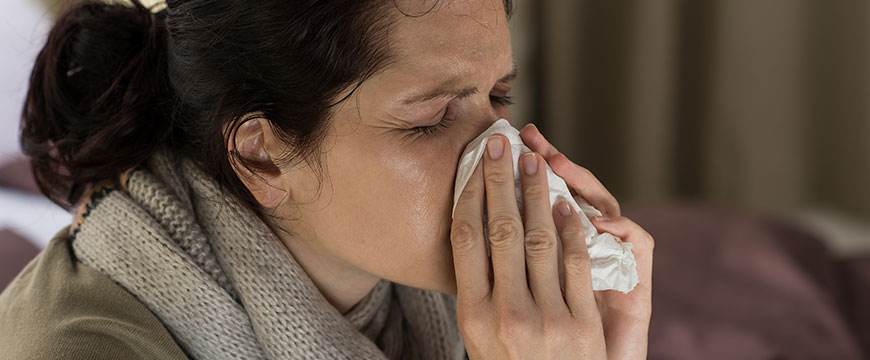
When you have allergic rhinitis, the inside of your nose is inflamed or swollen, which causes cold-like symptoms to lie blocked nose, itchiness, sneezing, and runny nose.
There is also nonallergic rhinitis that involves chronic sneezing, or you have a congested, drippy nose and you do not know what is causing it. The symptoms of nonallergic rhinitis are similar to people with hay fever, but with no typical evidence of an allergic reaction.
Nonallergic rhinitis affects adults and children, but it is more common after they are 20 years old. The nonallergic rhinitis trigger symptoms can vary and can include irritants or odors, medications, weather changes, some foods, and health conditions.
You can consult with an asthma doctor to have your symptoms checked.
How Does Nonallergic Rhinitis Happen?
Nonallergic rhinitis is caused by the inflammation of tissues inside the nose. It is also referred to as vasomotor rhinitis.
For a lot of people, nonallergic rhinitis is caused by certain triggers like some odors or medications. Some people may develop this condition because they have an underlying health problem/s.
The condition is not caused by being exposed to allergens. Nasal inflammation caused by allergens is the one caused by allergic rhinitis.
Symptoms
Rhinitis is caused by an allergy trigger like pollen, and it is a separate condition called allergic rhinitis. Nonallergic rhinitis symptoms include:
- Runny nose
- Blocked nose
- Sneezing
- Discomfort or mild irritation around and inside your nose
- Sense of smell is reduced
Very rarely, nonallergic rhinitis may also cause a crust to develop inside the nose, which could:
- Produce a foul odor
- Can cause bleeding if you attempt to remove it
Risk Factors
Exposure irritant – If you become exposed to irritants like smog, tobacco smoke, or exhaust fumes, you might develop nonallergic rhinitis.
Above 20 years old – Allergic rhinitis normally occurs before you reach 20, but for most people, nonallergic rhinitis happens after the age of 20
Female – Due to changes in hormones, nasal congestion normally worsens during menstruation and pregnancy
Using decongestant nasal spray for a long time – When you use over-the-counter decongestant sprays or nasal drops for a couple of days, you can suffer from severe nasal congestion after the decongestant wears off, most of the time they will go through rebound congestion
Some health problems – Some chronic health conditions can make allergic rhinitis worse, like chronic fatigue, hypothyroidism, and diabetes
Exposure to occupational fumes – Nonallergic can also be triggered by airborne irritant exposure. Some triggers can include solvents, construction materials, or chemicals and fumes that come from organic material decomposition like compost.
Treatment
Nonallergic rhinitis is normally not harmful, but it is irritating and affects your quality of life. The treatment will depend mainly on the severity of the rhinitis and what causes it.
In other cases, avoiding certain triggers and doing self-care measures such as rinsing your nasal passages, can relieve your symptoms.
When you rinse your nasal passages, you can do it by using a homemade solution or a solution made using ingredient sachets that were bought from the pharmacy.
You might need to take medicine in some cases, as a nasal spray with steroids. The steroid nasal sprays can help relieve congestion, but you might have to use them for a few weeks so they can work properly.
Complications
- Nasal polyps – Caused by chronic inflammation. These are benign growths that develop in the lining of your nose
- Interrupted daily activities – You might be less productive or need some time off when your symptoms flare-up
- Sinusitis
You can contact the allergy center Germantown MD if you want to have yourself checked in case you are experiencing symptoms.